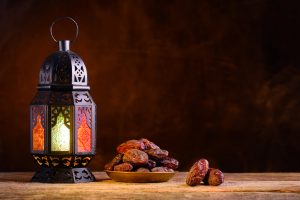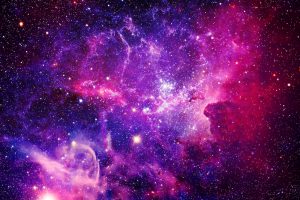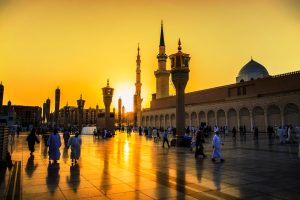
Sarmad Naveed, Canada & Dr. Shahzaib Ahmad, UK
Fasting during the month of Ramadan is one of the fundamental pillars of the Islamic faith. During the blessed month of Ramadan, it is obligatory for every able-bodied, mature and healthy person of sound mind to observe fasts from dawn till dusk, abstaining from all forms of food and drink.
Along with this obligation, however, it is important to keep in mind the following words of God Almighty, whilst explaining the injunction of fasting. He states:
‘Allah desires ease for you and He desires not hardship for you.’ [1]
Hence, even in fundamental rules and injunctions, there can be exemptions based on a person’s circumstances. Such is the case with fasting in Ramadan; God Almighty has granted leniency by stating that one is not required to fast whilst ill or on a journey. Instead, they can make up the missed fasts at a later time. [2] Furthermore, there are other categories which can fall under this exemption, for example, the Holy Prophet (sa) stated that pregnant women are also exempt from fasting. [3] The Promised Messiah and Imam Mahdi, Hazrat Mirza Ghulam Ahmad (as) states:
‘A person who fasts during the month of Ramadan whilst ill or on a journey contradicts the manifest commandment of God Almighty. God Almighty has clearly stated that a person who is ill or on a journey should not fast. Instead one should fast after recovering from the illness or upon completing the journey. This commandment of God should be acted upon, for salvation is achieved through the grace [of God]; one cannot forcefully attain salvation through their actions.’ [4]
It is clear therefore, that in such circumstances where an exemption put in place by God Almighty can be applied, it should be availed.
At present, as the blessed month of Ramadan has dawned upon us, the world is in the midst of trying to eradicate the crushing effects of the Covid-19 pandemic. At the forefront of this effort are the various Covid-19 vaccines which all eligible people are being encouraged to get.
In light of this, many Muslims have wondered as to whether it is permissible to get the Covid-19 vaccine while still maintaining their fast. The Fifth Caliph and Worldwide Head of the Ahmadiyya Muslim Community, His Holiness, Hazrat Mirza Masroor Ahmad (aba) clarified the matter when he stated:

‘Receiving any form of injection while fasting, whether intramuscular or intravenous, is prohibited. If an Ahmadi receives an appointment to have their Coronavirus vaccine during the month of Ramadan, they can avail of the exemption granted by Islam and abstain from fasting on the day they are due to receive the injection, and should make up for the fast after Ramadan.’ [5]
Some Islamic organizations, such as the British Islamic Medical Association have taken the stance that receiving the Covid-19 vaccine ‘does not invalidate the fast’. The basis of their view is that the vaccine is for ‘non-nutritional purposes’ and therefore any such injection is permissible regardless of the contents entering the blood circulation.
It is unfortunate that they have taken a stance which is contrary to the teachings of Islam. This stance taken by the British Islamic Medical Association, along with other Islamic organisations is refuted by a saying of Hazrat Ibn Abbas (ra), a great Islamic scholar from the time of the Holy Prophet (sa). In fact, it was regarding Hazrat Ibn Abbas (ra) that the Holy Prophet (sa) prayed, ‘O Allah! Teach him (the knowledge of) the Book (Qur’an).’ [6]
The very same Ibn Abbas (ra) said regarding fasting,
‘The fast is broken by that which enters (the body), not by that which leaves it.’ [7]
It is a simple and clear principle set out by Hazrat Ibn Abbas (ra) based on what he learned from the Holy Prophet (sa). Therefore it cannot be deemed permissible for one to receive an injection whilst maintaining their fast. Instead, as outlined by His Holiness (aba), one should avail the exemption which has been granted and complete the fast at a later time.
If the basis of whether or not an injection could be taken while fasting was simply determined by its nutritional value, then there are many medicines that do not have any nutritional value; can all those be taken while fasting? Where does it end? Furthermore, it would be absurd to think that a fast could be maintained even after having an injection administered when it is not even permissible to put something as simple as kohl [an eye cosmetic made by grinding stibnite] in the eyes while fasting. When asked whether it is permissible to put kohl in the eyes while fasting, the Promised Messiah (as) said:
‘Doing so is disliked. What is the need to apply kohl (surma) during the day when it can be applied at night.’ [8]

Furthermore, the guidance given by His Holiness, which is based on the true Islamic teachings, is supported medically and scientifically. Vaccines should be seen as a form of treatment. Though they are used as a preventative therapy, they are nonetheless still a treatment. Vaccines work by inducing a pathological state. The body’s immune system responds to foreign particles in the vaccines as if they are pathogens and this results in symptoms very similar to the disease. Vaccines commonly have short term side effects such as tiredness, headache, muscle pains, chills, fever and nausea. [9] [10] [11] In fact, most people (between 18% to 55%) report experiencing mild symptoms for up to 48 hours after receiving the COVID-19 vaccine. [12] In this state, a person can be considered sick and therefore exempt from the fast.
Even if these short term effects do not occur, as per Islamic injunction, the vaccine can be considered a form of treatment and treatments and medications taken during a fast invalidate the fast. In addition, it is a routine practice for healthcare staff administering the vaccine to recommend the use of painkillers such as paracetamol or ibuprofen as a treatment for the associated side effects and this recommendation has been endorsed by major health organizations with regards to COVID-19 vaccines. [7] [8] [9]
From the perspective of a doctor who has also had the vaccination, if one was not allowed to treat the effects of the vaccination such as chills and a painful arm because of fasting, they would surely be going against the desire of Allah; that despite Allah’s desire for ease, they would be insisting on hardship. Therefore, one can see the wisdom of the words from His Holiness (aba) as administering a vaccine invalidates the fast in multiple ways.
Hence, the guidance given by His Holiness (aba) about not fasting while receiving the Covid-19 vaccine is directly in line with Islamic teachings and is further supported by science and medicine. It is key to note that His Holiness (aba) mentioned that if one receives their appointment to have the vaccine administered to them during the month of Ramadan, they should take it and complete the fast at a later date.
It is not only a matter of protecting one’s self but, as Islam teaches, we must always endeavour to serve our fellow human beings. By receiving the vaccine we would be achieving just that, by helping to protect our communities and those around us – a spirit of greater service which is all the more fitting during a blessed month focused on attaining nearness to God. This of course can only be done in the true sense once we serve His creation as well.
Therefore, the matter has been made crystal clear by His Holiness (aba), the embodiment of the true Islam in today’s world – it is impermissible to fast while receiving the Covid-19 vaccine. One should, if they choose, get the vaccine if their turn comes during the month of Ramadan, however, rather than fasting on that day, they should complete the fast on a later day. Islam is not an impractical religion, and therefore exemptions have been allowed by the merciful God. Where He has allowed us to take benefit of these exemptions, it is our duty to implement them at the appropriate times. After all, ‘Allah desires ease for you and He desires not hardship for you.’ [13]
About the Authors:
Dr Shahzaib Ahmad is a specialist registrar in Intensive Care Medicine working in London, UK.
Sarmad Naveed is an Imam of the Ahmadiyya Muslim Community who graduated from the Ahmadiyya Institute for Languages and Theology in Canada. He serves on the Editorial Board of The Review of Religions and coordinates the Facts from Fiction section.
ENDNOTES
[1] The Holy Qur’an 2:186
[2] Ibid
[3] Tirmidhi Kitabus Saum Hadith #715
[4] Badr No. 42 Vol. 6 October 17, 1907 p. 7
[5] Letter from His Holiness (aba) to the Editor of Al Fazal International April 13, 2021)
[6] Sahih al-Bukhari Kitabul I`tisam bil Kitab wal-Sunnah Hadith #7270
[7] Kitab as-Sunan al-Kubra Kitabut Taharah
[8] Badr No. 6 Vol. 6, February 7, 1907 p. 7
[9] Centers of Disease Control and Prevention. Possible Side Effects After Getting a COVID-19 Vaccine. https://www.cdc.gov/coronavirus/2019-ncov/vaccines/expect/after.html
[10] Public Health England. What to expect after your COVID-19 vaccination. https://www.gov.uk/government/publications/covid-19-vaccination-what-to-expect-after-vaccination/what-to-expect-after-your-covid-19-vaccination
[11] National Health Service UK. COVID-19 vaccine side effects. https://www.nhs.uk/conditions/coronavirus-covid-19/coronavirus-vaccination/coronavirus-vaccine/
[12] Food and Drug Administration. Vaccines and Related Biological Products Advisory Committee December 10, 2020 Meeting. https://www.fda.gov/media/144245/download
[13] The Holy Qur’an 2:186




Add Comment